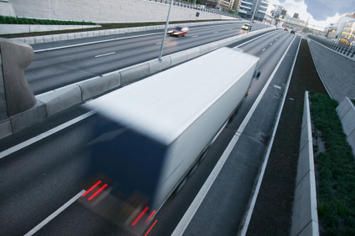
News Flash: The Federal Highway Trust Fund will go broke in August.
It went broke last year, and Congress needed an emergency transfer of $8 billion to keep it solvent. There was very little concern last year, but this year we find ourselves in a post-modernist political environment where managing a crisis is good politics, although actually all we do is talk about it.
According to Senator Barbara Boxer (D. CA), the fund will need $7 billion this year and another $10 billion next year to remain solvent through September 30, 2010. Even with this crisis verified and time running out, Congress seems reticent to pull the trigger on a solution anytime soon. It’s just too heavy a lift politically.
It should not surprise anyone that the trust fund is broke. The federal tax on gasoline has not been increased since 1994, but this did not stop politicians from spinning the issue. State and federal data show that gas tax collections are way down. In Pennsylvania for example revenues are running about $100 million below budget. There is also the recession, price of gasoline and more fuel efficient cars contributing to the crisis. But one factor often overlooked is that with the passage of the last federal highway bill (SAFETEA-LU) spending simply outstripped revenues, and even without changes in driving habits and the economic downturn the fund was slated to be depleted.
Now for the really tough part: Congress needs to find money, not simply print it. The trust fund has a dedicated source of funding that has lost about half its purchasing power to inflation over the past 15 years. During that period, politicians have avoided raising taxes for roads and bridges like the plague, so now a crisis looms and our political leaders are finding out that it is much easier to spend than adequately fund.
An Associated Press report stated, “A study by the Transportation Research Board of the National Academies estimated that the annual gap between revenues and the investment needed to improve highway and transit systems was about $105 billion in 2007, and will increase to $134 billion in 2017 under current trends.”
The usual bag of tricks used to obfuscate this issue is no longer available. Not one but two “blue ribbon” commissions have already reported that gas taxes need to be increased. In January, The National Commission on Surface Transportation Infrastructure Financing called for a ten cent per gallon increase. A two year study by National Surface Transportation Policy and Revenue Study Commission called for an increase of 40 cents per gallon. Both studies recommended that gas tax be indexed to inflation. The second recommendation had no chance since it would in effect take this issue out of the hands of politicians who would much rather do nothing about an issue than lose control over it.
Meanwhile, Congress has been busy at work expanding mandates for biofuels and increasing CAFÉ standards to more than 35 miles per gallon. These two combined decimate gas tax and make it an almost unworkable solution to this crisis going forward.
Problem solving often requires taking a long term view of things. It demands answering tough questions and a willingness to implement difficult solutions. Elected leaders find it very difficult to take a long term view, because they live in a two-year election cycle. It’s one reason why the founders wanted limited government. They knew the limits of government to make tough choices to solve difficult problems.
The day after the Department of Transportation reported the trust fund is reaching depletion it issued another press release announcing the Vice President Biden and Secretary of Transportation Ray LaHood were “challenging governors to think boldly when designing high-speed rail plans…” The Obama Administration has committed $13 billion to high-speed trains to jump start a “world class passenger rail system” in America.
The release states that “President Obama’s vision for high-speed rail mirrors that of President Eisenhower (who gave us the Interstate Highway System.)” High-speed rail was positioned as a solution to lower dependence on oil, provide for a cleaner environment, and drive economic growth. All may be true, but what about the $17 billion hole in the highway trust fund?
There is a lesson and a caution here about putting matters into the hands of politicians. They know that they won’t get as much credit for fixing something that is broken as they will for giving the people something new.
Maybe this explains why government budgets keep growing and so do the deficits for many of our legacy programs.
Dennis M. Powell is president and CEO of Massey Powell an issues management consulting company located in Plymouth Meeting, PA.













Leadership
I'm impressed by Obama's willingness to champion an effort that likely will not see benefits during his term. As you point out, it's not something we see often given our political system.
I wonder to what degree a crisis, rather than some down-the-road problem, can focus Congress on the things that need done like a new funding model for Transportation.
Ubiquinol CoQ10
I do not know if is going to give me 2000 pages or more, but I can tell you that the quality of printing is as good as the original brand. The settings allow you to make coffee in any quantity (up to 12 cups), at any level of strength. I have used this product for over three weeks now and noticed good increase in my breast tissue. I already have a brother machine, that is 9 yrs.old, but still works well. Coenzyme Q10 Interaction Coumadin http://tekui.teklib.org/1/sitemap/?pagenum=2
This is expensive, but you should have known that when you purchased the printer. Generally, I can drink or eat the worst tasting thing if I think that it is good for me, but I just can't stomach this. I have not had it very long but have enjoyed having the easy sewing. Coq10 Benefits Of http://tekui.teklib.org/1/sitemap/?pagenum=2 Coenzyme Q10 Male Infertility